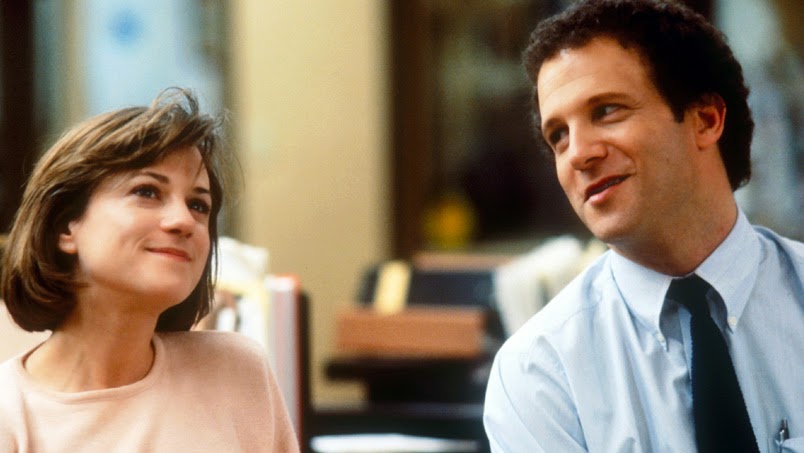 Do the Right Thing.
Do the Right Thing.Premiered June 30th, 1989.
Directed by Spike Lee.
Starring Spike Lee, Rosie Perez, Danny Aiello, Ossie Davis, Ruby Dee, Richard Edson, Giancarlo Esposito, Bill Nunn, John Turturro, John Savage.
Music by Bill Lee.
I'm going to preface this one with this thought. I'm a middle class Canadian white girl. The most discrimination I experience stems form my being a woman, but racially, I wouldn't know my ass from a whole in the ground on the experience within that conflict. While I think it's an important discussion to have with everyone in order to break those barriers put up by racial prejudice, it doesn't really matter what I think. I don't believe it's my place to comment. I would never presume to have any insight on this issue. I'll leave it up to those who experience racism to tell their own story and decide what's best for themselves. In here, I will only discuss film techniques on an artistic level. So this is me, removing my foot promptly from my mouth and placing it firmly on the ground, where it will stay.
 |
| X |
 |
| X |
Everyone is dressed to the nines, and for the most part, the streets are spotless. I would say this is a fairly idealized version of life in this neighborhood and others like it. That being said, this works really well and to the point where it's almost not even noticeable, because that's not what this film is about. Race relations can be examined in any location, realistic or not. Part of the point is that they're troublingly prevalent everywhere. Lee's directorial style incorporates a seemingly disjointed editing scheme that cuts between all the various layers of the story without any warning. The film even opens a little confusingly, with Rosie Perez dancing for about 4 minutes (
 |
| X |
9/10. Love it. Totally love it.
Films worthy of honorable mention this year are Back to the Future II (one of the most tolerable sequels I've ever seen), Honey, I Shrunk the Kids (giant ants are truly the most terrifying), The Little Mermaid (the beginning of a golden era, when Disney was able to deliver to our children vile and dangerous messages in neat little beautifully written, animated and produced packages). All Dogs go to Heaven (Charlie Sheen is arguably a better actor as a dog than he is as a man), The Big Picture (a great movie made by a film student fresh out of school about what it's like to make a movie fresh out of film school), Bill and Ted's Excellent Adventure (this film is so important, I can't stress that enough. Sooooo important), The Cook, the Thief, His Wife, & Her Lover (this will be my next review, so stay tuned), Crimes and Misdemeanors (some would say the best Woody Allen film, and while I wouldn't be one of them, it is definitely better than most), Drugstore Cowboy (I haven't actually seen it, but I hear really good things, and Matt Dillon is a hunk and a half), Field of Dreams (people do not give this thing enough credit. Next time you watch it, try to change your mindset. Give it chance to be good and then see what you think. It might surprise you. Also, James Earl Jones saying baseball is enough to make it perfect), Kiki's Delivery Service (probably my least favorite Hayao Miyazaky film, but even a not very good one of his films is pretty dang good), National Lampoon's Christmas Vacation ( The merriest goddamn Christmas since Bing Crosby danced with Danny fuckin' Kay!), Parenthood (I hope when I have children I turn into Mary Steenburgen), Sex, Lies, and Videotape (James Spader, everybody), Society (so the whole film you'll be like what? and then at the end you'll be like holy shit, what?) Steel Magnolias (it's really sweet and charming and then all of sudden someone who you are not expecting to die dies, and you will cry...so much), Sweetie (Jane Campion is my idol), Uncle Buck (another adoreable Hughesian classic), and When Harry Met Sally...(I don't actually like this film, but I love the cast and Harry Connick Jr. did the soundtrack, so that's awesome).
Peace,
Gang.






















